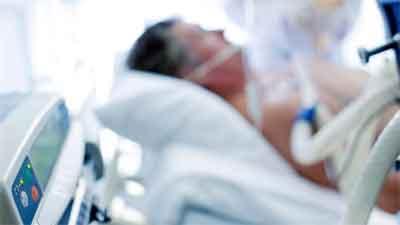- Home
- Editorial
- News
- Practice Guidelines
- Anesthesiology Guidelines
- Cancer Guidelines
- Cardiac Sciences Guidelines
- Critical Care Guidelines
- Dentistry Guidelines
- Dermatology Guidelines
- Diabetes and Endo Guidelines
- Diagnostics Guidelines
- ENT Guidelines
- Featured Practice Guidelines
- Gastroenterology Guidelines
- Geriatrics Guidelines
- Medicine Guidelines
- Nephrology Guidelines
- Neurosciences Guidelines
- Obs and Gynae Guidelines
- Ophthalmology Guidelines
- Orthopaedics Guidelines
- Paediatrics Guidelines
- Psychiatry Guidelines
- Pulmonology Guidelines
- Radiology Guidelines
- Surgery Guidelines
- Urology Guidelines
Immediate angiography of no benefit in cardiac arrest patients without STEMI: COACT trial

Netherlands: Immediate angiography (with an intent to revascularize) is not superior to delayed strategy in comatose cardiac arrest patients without STEMI who are successfully resuscitated, confirm findings from a 1-year follow up data from the COACT trial. No benefit was noted with long-term follow-up either -- 90-day follow-up showed no survival advantage, note the researchers.
The findings were presented at the American Heart Association (AHA) 2019 Scientific Sessions on November 17 by Jorrit Lemkes, Amsterdam University Medical Centre, the Netherlands.
"We observed no difference in survival or in the rates of MI, revascularization, rehospitalization due to heart failure, or implantable cardioverter-defibrillator shocks between immediate and delayed angiography," Lemkes said at the meeting.
These are very important findings and will likely influence guidelines on this topic. The guidelines, based on observational data, recommend immediate coronary angiography with PCI in patients who present with STEMI and cardiac arrest. Also, the guidelines recommend emergency angiography in patients with cardiac arrest without ST-segment elevation.
The COACT trial is the first randomized study that investigated the role of immediate coronary angiography in patients successfully resuscitated from out of hospital cardiac arrest in the absence of ST-segment elevation. In this trial, the researchers hypothesized that immediate coronary angiography would improve 90-day survival.
The trial, conducted at 19 Dutch hospitals, enrolled 552 patients with out-of-hospital cardiac arrest, showing no signs of STEMI. They were randomized to immediate or delayed angiography after neurological recovery. 80% of the patients experienced cardiac arrest.
In the immediate-angiography group, the procedure was performed as soon as possible after presentation while in the delayed group it was performed in most cases after discharge from the ICU. Median time from randomization to angiography was 0.9 hours in the immediate group and 120 hours in the delayed group. Ultimately, 97.0% and 64.7% of patients in these groups underwent angiography, respectively. One-year follow-up data were available for 522 patients, representing 94.5% of the original cohort.
Key findings of the study include:
The primary outcome, survival to 90 days for immediate vs. delayed angiography, was 64.5% vs. 67.2% (p = 0.51).
Secondary outcomes for immediate vs. delayed angiography:
- Survival with good cerebral performance or mild/moderate disability: 62.9% vs. 64.4% (p > 0.05)
- Survival to hospital discharge: 65.2% vs. 68.7% (p > 0.05)
- TIMI major bleeding: 2.6% vs. 4.9%
- Need for renal replacement therapy: 2.9% vs. 4.2%
One-year outcomes:
- Survival for immediate vs. delayed angiography: 61.4% vs. 64% (p > 0.05)
- MI since index hospitalization: 0.8% vs. 0.4%
- Any revascularization since index hospitalization: 3.8% vs. 3.9%
- Physical and mental summary scores similar
"At present, the results of COACT with regards to primary and secondary outcomes should guide practitioners that angiography remains essential but that early angiography does not improve outcomes compared to delayed angiography,” he concluded, predicting that the ACCESS and DISCO trials will add clarity to the discussion going forward," concluded the authors.
References:
Coronary Angiography After Cardiac Arrest - COACT
One-year outcomes of coronary angiography after cardiac arrest without ST segment elevation: results of the COACT trial

Disclaimer: This site is primarily intended for healthcare professionals. Any content/information on this website does not replace the advice of medical and/or health professionals and should not be construed as medical/diagnostic advice/endorsement or prescription. Use of this site is subject to our terms of use, privacy policy, advertisement policy. © 2020 Minerva Medical Treatment Pvt Ltd